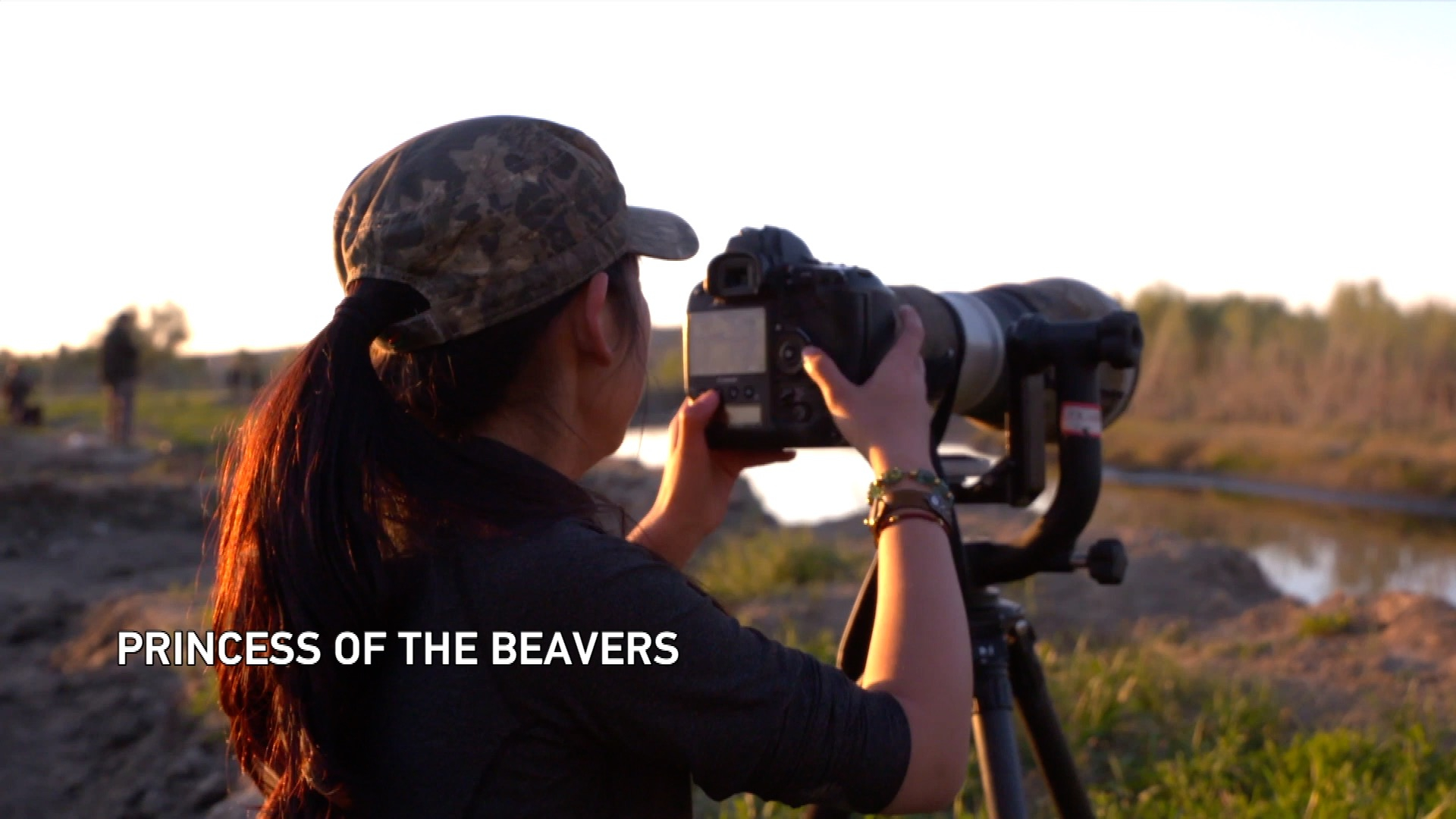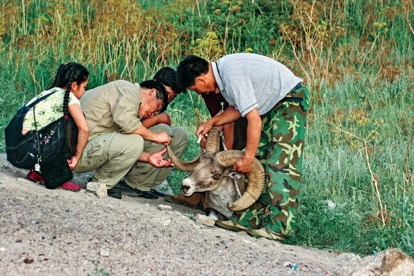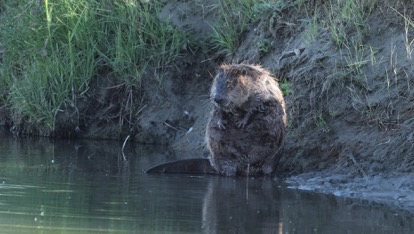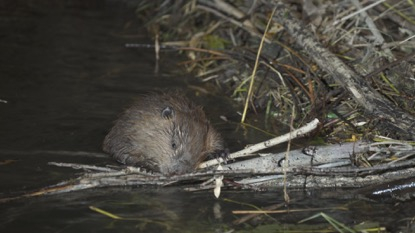

"Princess of the Beavers" is a documentary charting the efforts of Chu Wenwen, a wildlife conservationist, to protect the endangered Sino-Mongolian beavers in Altay Prefecture in northwestern China's Xinjiang Uygur Autonomous Region.
The 25-year-old's love for wildlife was inspired by her father Chu Hongjun, who is a local forestry official and renowned wildlife expert. Twenty-nine years ago, Hongjun traveled 4,000 kilometers from his hometown in Shandong Province in China's east coast to the barren northwest. Originally, his intention was to stay long enough to complete his graduate thesis on beaver protection, but he has stayed there ever since.
For over a year, from the winter of 2017 to the winter of 2018, a CGTN film crew followed the father and daughter, witnessing their dedication to conserve the region's wildlife, and recording the joys and sorrows they experienced.
Wenwen's life has been anything but ordinary. She was only two years old when she first accompanied her father on an expedition, researching the various wild animals that are unique to northern Xinjiang, such as Mongolian wild asses, goitered gazelles and argali. Over the past two decades, she has befriended the animals, to the point that she now treats them as part of her family.

Chu Wenwen (L) accompanies her father (2nd L) and his team on their field research. / Photo provided by Chu Wenwen
At the age of seven, she received a digital camera from her father as a gift. With it, she recorded an historic event – the first ever release into the wild of a group of Przewalski's horses, a species that was recovering from near extinction. Ever since then, she has been capturing on film the various animal inhabitants of the region, especially the Sino-Mongolian beavers, which she lovingly calls her "babies".

Rubbing belly is a typical behavior of a beaver. / Photo provided by Chu Wenwen
The Sino-Mongolian beaver is a species that has been around since the time of the dinosaurs. Listed as a first-class state-protected animal in China, the beavers are found only along Xinjiang's Ulungur River. According to Wenwen, there are only 509 of them left in the area, and to her distress they and their habitat continue to be under threat, primarily from the expanding local human population.

A beaver builds a dam before winter comes. / Photo provided by Chu Wenwen
"We film the wild animals because we want to protect them," says Wenwen. "We want more people to know about them and the conditions they're living in."
As she grew up, Wenwen witnessed her father steadfastly combating the poaching, mining and other illegal activities that threatened the wildlife habitats of northern Xinjiang. She eventually decided to take over the responsibility of protecting the beavers.
In the course of over a year's filming, CGTN captured Wenwen's growth from an idealistic graduate student to a down-to-earth wildlife conservationist.
In the winter of 2017, she gathered together a group of videographers, with the intention of making a documentary about the wildlife of northern Xinjiang. However, before long the team dismissed due to lack of funds.
Undaunted, Wenwen subsequently established an NGO that aims at helping the locals learn about wildlife protection. Last winter, she and her team went from village to village, distributing animal feed and urging the local herdsmen to keep their oxen away from the river. This would prevent them from trampling down the dams built by the beavers to protect their lodges in the riverbank. She has also launched a campaign to encourage the local villagers to plant willow trees as a way of boosting the beavers' food supply.
Her next step will be building an education center in Altay, where visitors can observe and learn about the region's unique wildlife, including her beloved beavers.
"I think the turning point of wildlife protection in China will only come when people's awareness changes," says Wenwen. "I want to help them understand that wild animals are closely bound up with us, and that we can't thrive if they die out."
(Cover image via Screenshot.)
(If you want to contribute and have specific expertise, please contact us at nature@cgtn.com)

Copyright © 2018 CGTN. Beijing ICP prepared NO.16065310-3
Copyright © 2018 CGTN. Beijing ICP prepared NO.16065310-3